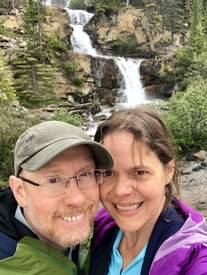We are pleased to announce that as of March 4, 2025, an updated Rich Text Editor has been introduced in the MyFitnessPal Community. To learn more about the changes, please click here. We look forward to sharing this new feature with you!
Advice on going organic?

chelsey787
Posts: 261
I've been thinking a lot about going organic and cutting processed foods out of my diet. Yes, I eat healthfully, but as a college student, i tend to buy the cheapest stuff out there. We don't really have any "organic, health" food stores where i live (however, one is opening up - yay!) but I know there are still a lot of options out there for me.
i either want to:
a) start out small with the easiest products to go organic with
or
b) cut out all processed foods out of my diet (basically, i mean "junk" like frozen dinners, cookies, etc) however, if it was organic, i would be more apt to eating it because i know what's going in there.
any advice on how i can do this in a cost efficient way?
thanks for all your help guys!
i either want to:
a) start out small with the easiest products to go organic with
or
b) cut out all processed foods out of my diet (basically, i mean "junk" like frozen dinners, cookies, etc) however, if it was organic, i would be more apt to eating it because i know what's going in there.
any advice on how i can do this in a cost efficient way?
thanks for all your help guys!
0
Replies
-
I've been thinking a lot about going organic and cutting processed foods out of my diet. Yes, I eat healthfully, but as a college student, i tend to buy the cheapest stuff out there. We don't really have any "organic, health" food stores where i live (however, one is opening up - yay!) but I know there are still a lot of options out there for me.
i either want to:
a) start out small with the easiest products to go organic with
or
b) cut out all processed foods out of my diet (basically, i mean "junk" like frozen dinners, cookies, etc) however, if it was organic, i would be more apt to eating it because i know what's going in there.
any advice on how i can do this in a cost efficient way?
thanks for all your help guys!0 -
Sure. Start with stuff that isn't that much more expensive: bananas (oooh, what a difference!), apples, carrots, celery. Get stuff frozen: broccoli, raspberries, green beans. Buy stuff in bulk: brown rice, whole wheat pastas, oats. If you buy "pre-made" stuff, that is where most of your money is going to go, so keep that to a minimum. It's usually loaded with salt as well. Big investments go to animal products as well. Farmer's markets are the best source for animal products as well as fruits and veggies. Normally organic won't cost you more at the farmer's market. Shop seasonally. The easy way to do this is to buy stuff that's on sale.
For the least amount of pesticide usage, go with the following fruits and veggies:
http://www.realage.com/ct/tips/5776
Keep in mind everyone has a different list. Wash all food regardless of organic status. Remember, cow patties are organic. 0
0 -
The best advice I've heard on this is to start with the things you eat most often. If you have a lot of things that are staples of your diet, and you can afford it, buy those organic.
It's a different approach. Like, for me, for example I eat at least an apple a day, so I buy organic apples. We also eat a lot of corn tortillas (I'm sensitive to wheat) so I buy those organic.
Just another way to approach. I find that the extra money I spend on organic stuff is equal to the amount I used to spend on "convenient" crap. 0
0 -
I have tried doing this over time and think that's a good way to go. Organic is definitely more expensive, but I don't necessarily think you have to go 100% organic to be natural. Granted I would love to say I eat only organic food, but for me it is something to work up to. I started by cutting out processed foods. Processed foods are typically more expensive anyway. Cooking homemade meals definitely helps too - you can control what goes into your meals. My unofficial rule is that I don't buy it unless I can read the ingredient list and know what they all are!
 0
0 -
thanks for all your input! i've started to devise a plan. to introduce myself to this whole organic thing slowly...
1. start out by buying organic for the 5 things i use most: lettuce, apples, bananas, peanut butter, and potatoes
2. cut out processed foods from my diet (slowly... lol)
does anyone use anything in lieu of milk? i've heard almond breeze is good (i use french vanilla creamer in my coffee, would this be good?)
any more input would be so greatly appreciated!0 -
If you think about it though with bananas and oranges for example you don't eat the skin as you do in apples and berries so maybe invest in fruits and veggies that you would just pick up and eat versus the ones where you peel most of the pesticides away.
And going to farmer's markets are a good idea and buying your meat from someone local and know how they raise their meat wether it is chicken or beef or so on.
Those are just some ideas I have received from a friend of mine who is a vegetarian. Hope it helped!!!
:flowerforyou:0 -
Check out this article on which produce is the best to buy organic:
http://climate.weather.com/articles/organicfood.html?page=1
Also, you can get organic milk. Generally if your concern is the chemicals that go into your body, it's better to buy organic higher up on the food chain - the animals we eat store all the toxins from the non-organic foods they eat, so it's more concentrated in meat and other animal products than in produce. But it's also way more expensive to get organic meats than organic veggies! Just do what you can afford. :flowerforyou:0 -
I haven't gone completely organic yet, for now I just switched to "simple" foods. Rice, veggies, meats. Nothing processed.0
This discussion has been closed.
Categories
- All Categories
- 1.4M Health, Wellness and Goals
- 394.4K Introduce Yourself
- 44K Getting Started
- 260.5K Health and Weight Loss
- 175.6K Food and Nutrition
- 47.5K Recipes
- 232.7K Fitness and Exercise
- 393 Sleep, Mindfulness and Overall Wellness
- 6.4K Goal: Maintaining Weight
- 8.5K Goal: Gaining Weight and Body Building
- 153.1K Motivation and Support
- 8.1K Challenges
- 1.3K Debate Club
- 96.3K Chit-Chat
- 2.5K Fun and Games
- 3.3K MyFitnessPal Information
- 16 News and Announcements
- 934 Feature Suggestions and Ideas
- 2.3K MyFitnessPal Tech Support Questions





